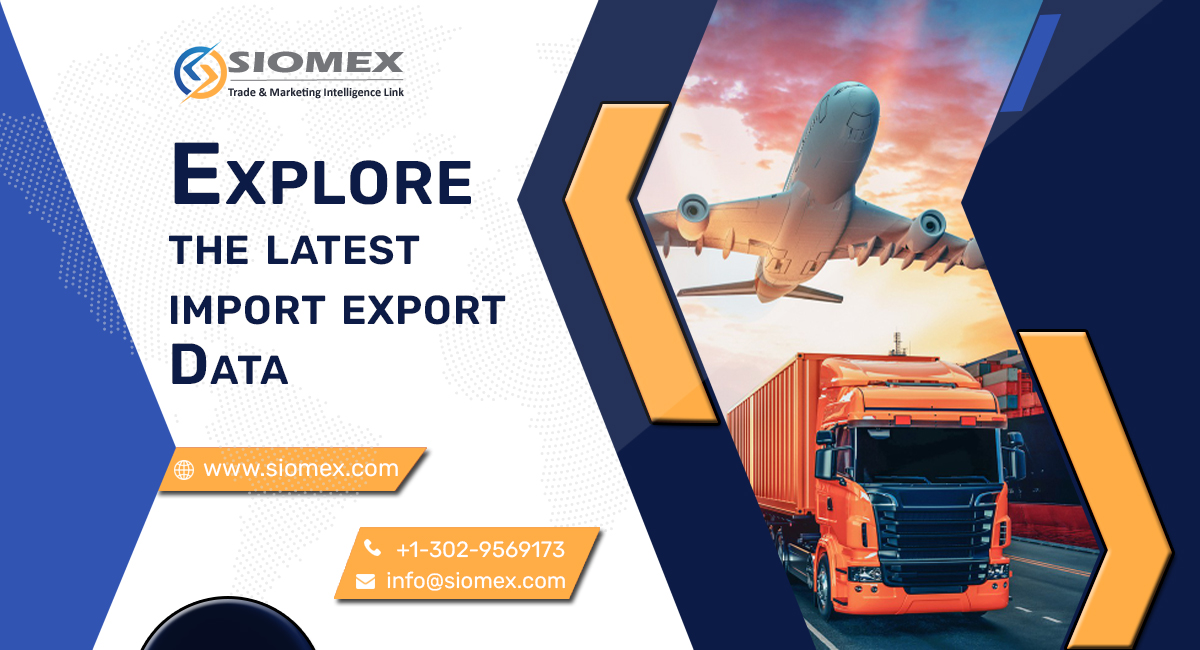
Strategies for Successful Import Export Data Management
Taking business to new heights is not that easy or simple. It requires a lot of hard work, patience and most importantly proper planning.
When it comes to business planning it requires a lot to have quality imports exports data.
The more accurate, comprehensive and relevant information you get the easier it becomes to take your business to the next level of performance and success.
Export-import data solution providers are nowadays working with the objectives and strategies to make focusing on products and getting potential customers more simple for traders.
To export better import-export India data providers serve traders in the following ways
Centralize Data Storage:
One of the fundamental steps in import-export data management is to establish a centralized data storage system.
This allows businesses to consolidate all relevant information, including product details shipping documents, customs declarations and financial records.
By maintaining a suitable database companies can streamline data access, improve collaboration, and ensure data accuracy across various departments.
Automate Data Entry and Processing:
Import-export operations involve a substantial amount of data entry and processing. Manual handling of this data not only increases the risk of errors but also consumes valuable time and resources.
Implementing automated solutions for data entry and processing can significantly enhance efficiency.
By using technologies such as optical character recognition (and automated data capture businesses can extract information from invoices bills of lading and other documents eliminating manual data entry errors and reducing processing time.
Ensure Data Accuracy and Consistency:
Accuracy and consistency are important when it comes to import-export data management. Inaccurate or inconsistent data can lead to costly errors, delays in customs clearance, and compliance issues.
To maintain data integrity, it is essential to implement robust quality control measures. This includes regular data validation, verification of key fields, and cross-referencing against trusted sources.
Collaborating with reliable import-export data providers like Siomex can further enhance data accuracy, as they employ rigorous data cleansing techniques and ensure the validity of the information.
Embrace Real-Time Data Monitoring:
The dynamic nature of international trade demands real-time visibility into import-export data. Businesses should leverage advanced tracking technologies and monitoring systems to gain actionable insights.
Real-time data monitoring allows companies to track shipments and identify problems in the supply chain proactively addressing any issues that may arise.
By promptly analyzing data trends and patterns, businesses can make informed decisions, optimize their logistics operations, and maintain a competitive edge in the global market.
Utilize Data Analytics and Reporting:
Import-export data management goes beyond data collection; it also involves analysis and reporting.
By employing data analytics tools businesses can uncover valuable insights such as identifying emerging market trends, forecasting demand and optimizing inventory levels.
Data visualization techniques can further promote effective communication of insights across teams enabling stakeholders to make data-driven decisions.
Access to complete and updated data from reliable data providers like Siomex empowers businesses to generate accurate reports and derive meaningful conclusions.
Conclusion:
Successful import-export data management is a critical aspect of international trade operations.
By adopting strategies such as centralizing data storage, automating data entry ensuring accuracy and consistency embracing real-time data monitoring and utilizing data analytics, businesses can solve their import-export processes reduce risks and improve overall operational efficiency.
Collaborating with reputable import-export data providers like Siomex can further enhance data management practices ensuring businesses have access to accurate and reliable information for informed decision-making in the global marketplace.
